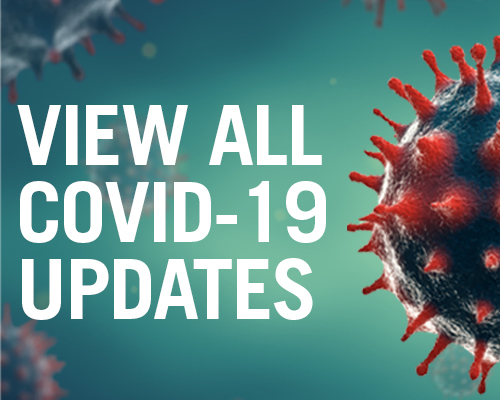COVID-19’s Kawasaki-Like MIS-C Diagnosis Is Cropping Up in Adults
Three case reports describe adults whose symptoms, including conjunctivitis and rashes, echo the rare pediatric presentation.

The COVID-19-linked constellation of symptoms dubbed the multisystem inflammatory syndrome in children (MIS-C) has been increasingly seen around the world, but a smattering of recent reports document what appears to be a very rare but similar presentation in adults.
Writing earlier this month in the Lancet, multidisciplinary team at NYU Langone Health in New York City describes the unusual clinical presentation of “Kawasaki-like multisystem inflammatory syndrome in the setting of SARS-CoV-2 infection” in a 45-year-old man. On July 10 in the Lancet Rheumatology, Imogen Jones and colleagues describe the case of a 21-year-old man admitted to a University College London hospital who met the criteria for pediatric inflammatory multisystem syndrome temporally associated with SARS-CoV-2 (PIMS-TS, as it is known in the United Kingdom). In late June, Sabrina Sokolovsky, DO, and colleagues writing in the American Journal of Emergency Medicine (AJEM) describe a case of a 36-year-old woman who presented to Maimonides Medical Center in Brooklyn, NY.

In all three cases, the adult patients met the pediatric criteria typically used to diagnose Kawasaki disease in kids that have emerged as some of the hallmark characteristics of MIS-C/PIMS-TS. According to the Washington Post, Northwell Health’s Long Island Jewish Medical Center in New York and the University of California, San Diego, have also reported adult cases.
Marlis Gnirke, MD, was the lead author with Sheila Shaigany, MD (both New York University Grossman School of Medicine), on the Lancet paper and pointed TCTMD to the other two recent reports. “Our aim in publishing this case report was to raise awareness of the possibility that a COVID-19-associated multisystem inflammatory condition may occur in adults,” she said, noting that this syndrome “didn’t even have a name” at the time they diagnosed the patient they wrote up for the journal. Now, since both the US and UK terms have “children” or “pediatric” in them, “adult providers need to be aware that something analogous may occur in their patients as well,” she said.
Of particular interest to cardiologists, the patient in the case that Gnirke and colleagues detail in their report had elevated troponin, ST elevation on ECG, global hypokinesis of the LV wall with an ejection fraction of 40% on echocardiography, and angiographically normal coronary arteries. “This is most consistent with myocarditis versus stress cardiomyopathy,” Gnirke said.
Multi-organ Inflammation
As previously reported by TCTMD, this new inflammatory syndrome in kids first came on the radar of cardiologists because the range and combination of symptoms reported overlapped with Kawasaki disease and its associated shock syndrome (KSS), raising concerns that the coronaries might be involved. Authors of a range of published series from around the globe are urging follow-up echocardiograms to check for cardiac injury and in particular to make sure that coronary aneurysms are not a late sequelae of this illness, something already documented in a subset of affected children.
Gnirke pointed out that among the three adult cases reported to date, there is no mention of cardiac involvement in the AJEM case, whereas in the Lancet Rheumatology report, the 21-year-old man had elevated troponin but a normal ECG, normal echocardiogram, and a normal coronary CT angiogram.
Of note, therapies recommended for the treatment of Kawasaki and KSS have been shown to help in this new pediatric syndrome and, in fact, in the adult cases noted above, the patients were treated similarly with all three treated with intravenous immunoglobulin. A corticosteroid was used in two cases and the interleukin-6 inhibitor tocilizumab in the third. All three patients were discharged from the hospital and their symptoms resolved—in the case of the 45-year-old man who had evidence of cardiac involvement, a follow-up echo was normal.
A wide range of specialties need to be aware of the potential for these symptoms as a manifestation of a COVID-19-associated syndrome. Marlis Gnirke
“As we continue to learn about SARS-CoV-2-associated syndromes, it will be important to be aware of the possibility of an MIS-C-like syndrome occurring in adults, including the potential cardiac manifestations,” Gnirke told TCTMD .
Determining the mechanism of myocardial injury will help guide treatment modalities, specifically the use of IV immunoglobin and other immunomodulators, she added. “It is unknown what potential chronic cardiac complications may result from SARS-CoV-2-associated myocarditis, whether as part of an MIS-C like syndrome or in isolation, and it will be important to closely monitor patients for potential downstream complications, both in patients with known COVID-19-associated myocarditis and in patients who may have had milder and therefore undiagnosed presentations.”
Of note, Gnirke and her co-authors represent a diverse swath of medical specialties including rheumatology, dermatology, infectious diseases, and emergency medicine, with additional collaboration from specialists in cardiology and ophthalmology, she told TCTMD. She’s hoping that word of this rare syndrome in adults will reach as wide a range of practitioners as possible, since in the COVID-19 era patients may not seek help via the regular pathways of care.
“This is a multisystem syndrome and patients may present to a variety of clinical settings including seeking outpatient specialist care first, so a wide range of specialties need to be aware of the potential for these symptoms as a manifestation of a COVID-19-associated syndrome,” Gnirke stressed.
Shelley Wood was the Editor-in-Chief of TCTMD and the Editorial Director at the Cardiovascular Research Foundation (CRF) from October 2015…
Read Full BioDisclosures
- None of the authors of the case reports had relevant conflicts of interest.


Comments